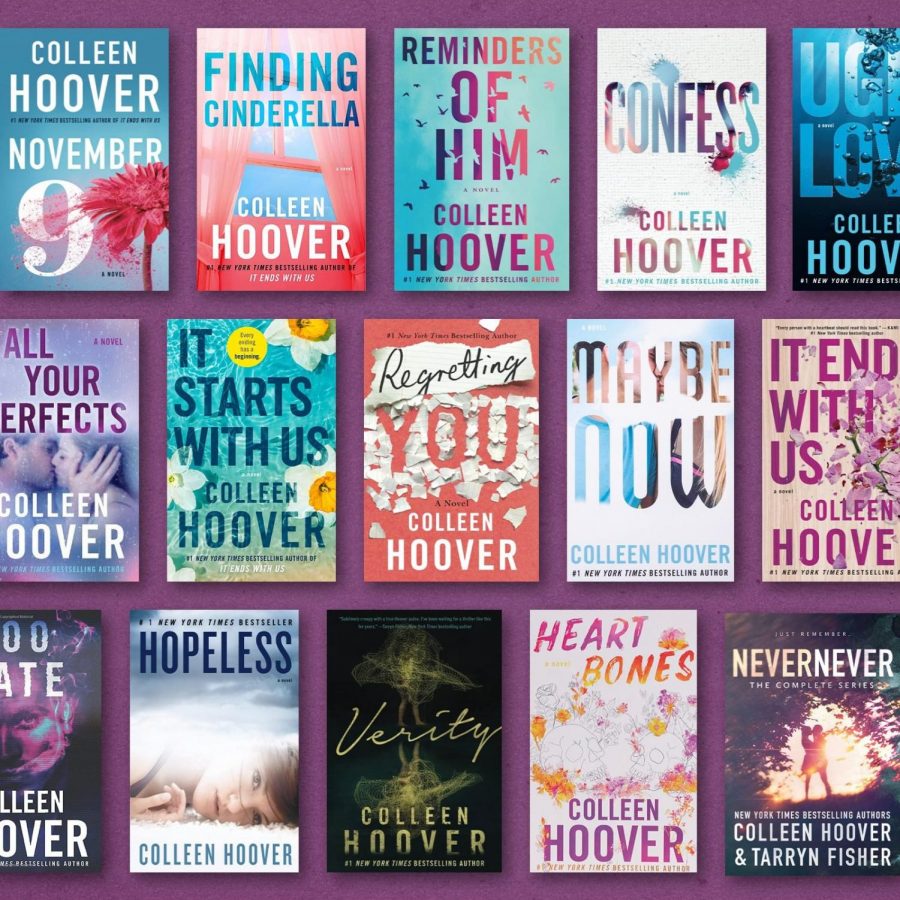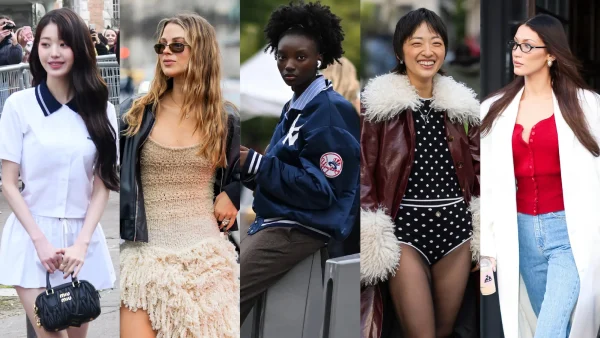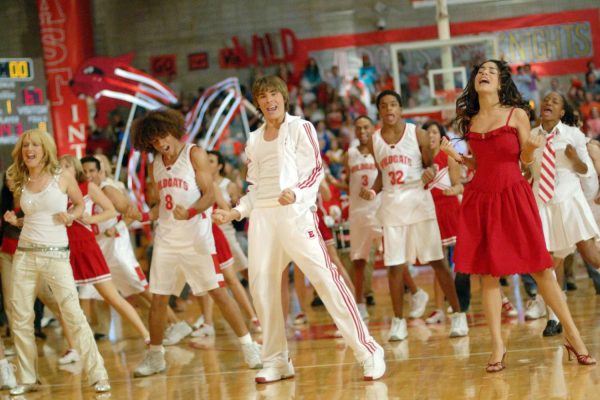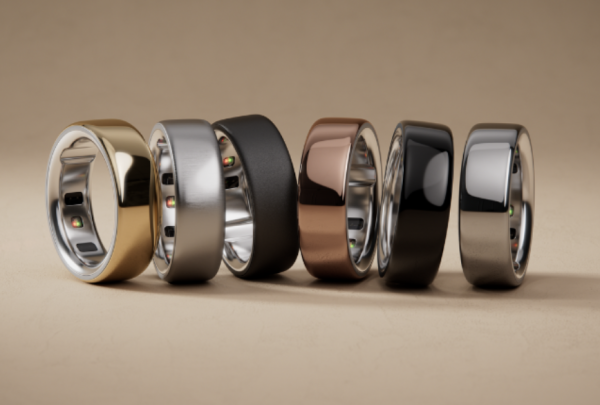Colleen Hoover Romanticizes Toxic Relationships
Colleen Hoover was 2022’s best selling author, single handedly taking the book industry by storm with her romance novels. Beyond just investigating fictional relationships, Hoover’s novels incorporate complexities such as domestic abuse, assault, and infidelity. TikTok–an app largely dominated by the youth–is largely responsible for Hoover’s maybe unintended audience; young women still working towards defining what exactly a healthy relationship is. It stands to reason that this majority also happens to be the most impressionable to the messages Hoover sends through her novels, whether she is aware of it or not. After months of book sales skyrocketing and readers becoming completely immersed in intricate plotlines, fans have started to become wary of the subtle yet prominent lessons Hoover sends through her novels.
Despite Hoover’s growing fanbase, many of her supporters have become conflicted, claiming she “romanticizes toxic relationships.” This is the case for mostly her older readers–younger girls can not yet understand why her books would be troubling due to their lack of experience with relationships –so they are the ones most influenced by these messages.
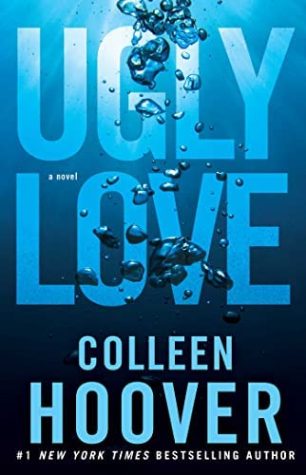
A perfect example of this is in her 2014 novel Ugly Love, where Hoover explores a toxic relationship between the characters Tate and Miles. Tate and Miles share a connection from the start, but due to Miles’ difficult past, he is unable to form anything other than a physical relationship with her. They begin this solely physical relationship, and Miles makes two rules: “Never ask about the past, and don’t expect a future”. Tate is oblivious to what Miles has gone through yet accepts this toxic ultimatum. Now, we’ve seen this trope in books and in real life–a girl is infatuated with a guy, so she compromises what she wants to stay with him. This is somewhat realistic and is completely okay to show in books, but the way Hoover handles this toxicity is the problem.
First off, it is important to note that this book is written in a then-and-now format. As we see the progression (or lack thereof) in Miles and Tate’s ‘relationship,’ we discover what stunted Miles in his past. The way this is set up is captivating and keeps the reader hooked, but it ends up creating a situation where his past justifies his current mistreatment of Tate. Miles holds all the power in the relationship–he makes the rules, and he tells her what she can and can’t do. When Miles was young, he had a newborn baby with his girlfriend, and this baby passed away in a car accident. This is traumatic and one of the most awful things a person can go through, but this does not mean Tate should blindly accept distant and cold behavior towards her. Rather than portraying Miles as a victim of his own circumstances and his past, Hoover should be highlighting the importance of taking responsibility for one’s actions and not allowing past trauma to excuse bad behavior. Hoover should be emphasizing the importance of requiring respect from those around us. Yes, Miles had gone through a nightmare and lost his two loves, but he shouldn’t project this on Tate.
Again, Hoover has a very young audience who are shaped by the messages in her book. Tate needed to come to the realization that she deserved more–not just because she wanted Miles, but because she wanted more for herself. Hoover neglected to end this book in a meaningful way, and missed an opportunity to teach her readers the importance of demanding respect in a relationship; instead, she repeated and romanticized harmful behavior, implying that it is justifiable for men to treat women as disposable if they can come up with a good enough reason.
Berkley librarian Mrs. Terbrack agrees that Hoover misportrayed what a relationship should be and does not read her books for exactly this reason. She explains that she doesn’t love the mentality Hoover gives her female characters, which is “I am just going to take all of your abuse–whether psychological, emotional, or mental–and just try to be okay with it.” Mrs. Terbrack adds that there are more eloquent ways to handle the issue of abusive relationships, but Hoover misses the mark. “There are definitely stories with similar themes, but I think the way they handle or address it is different, in that they try to help the main character, usually a female, see why this is not a good healthy relationship and to get out of it or to improve it. And I think that’s what they lack, is that recognition of abusive relationships.”
In most of her books, the man is dominant in the relationship and does the breaking up with toxic rule-setting. Mrs. Terbrack comments, “It also kind of makes it [toxic relationships] seem cool because she is then trying to win him back because he dumped her. It makes it seem like it’s not just bad, but what somebody wants or should want.” Hoover could show a different angle or improve a toxic relationship, which Mrs. Terbrack explains, “If the girl dumped the [emotionally abusive] guy, and he was trying to earn her back; it would seem like maybe he realized that what he did was wrong, so he’s going to change. Whereas when she is trying to get him back, and he’s not acknowledging that he was awful; it makes it seem like that is what we should want, that kind of relationship.”
So, the question is: Should Hoover be changing her story for her audience, or should she reconsider marketing these books to young girls? One thing that is for sure is these stories are damaging to perceptions of healthy relationships, and the more books like these that young adults read, the more ingrained these fault messages will be. Mrs. Terbrack wishes that “by the end, more of the main female characters realized how unhealthy these relationships were, and how damaging they were, and how they all deserve better, regardless of what they’ve done in their past–that nobody deserves those kinds of relationships.” She adds that “There are many, many books that focus on abusive relationships but the way that they deal with it, especially at the end, is more healthy.”

Hi! I am Aria Dwoskin, and this year I am the Editor-in-Chief of the Berkley Spectator! I am a senior, and this is my fourth year on The Spectator. I...


